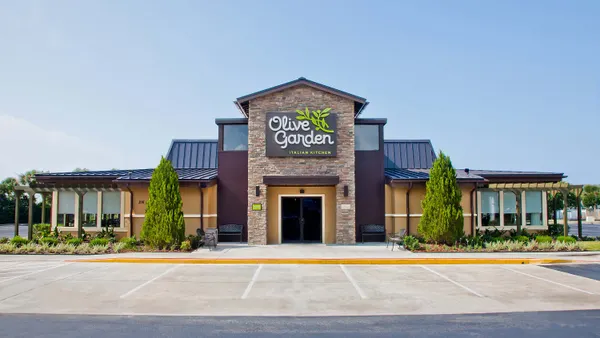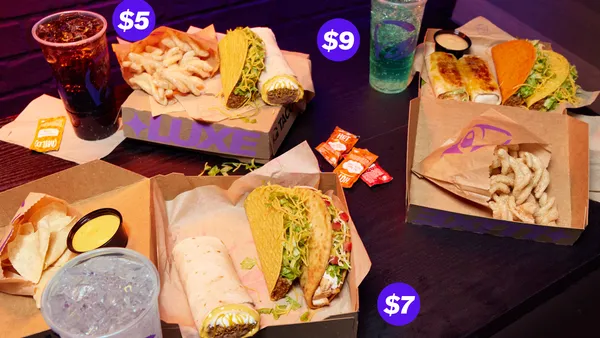Dive Brief:
- OpenTable has launched a "Show-Up for Restaurants" initiative to spotlight the impact no-shows and late cancellations have on restaurants, and to encourage diners to modify or cancel their reservation when plans change, according to a press release.
- During the summer, the booking platform will provide a tool that allows restaurants to label a diner as a potential no-show based on their previous reservation activity so they can be proactive about confirmations as the reservation approaches.
- The initiative and accompanying tool come as the industry opens back up across the country. More than 80% of restaurants have reopened in the U.S. and Yelp is seeing its highest total numbers ever for seated diners, surpassing pre-pandemic highs. Sales are also rebounding, with the industry generating $64.9 billion in sales in April.
Dive Insight:
With more than 60,000 restaurant partners and more than 1 billion guests seated per year, OpenTable's reach could potentially increase awareness about the negative effects no-shows have on restaurants. OpenTable's latest survey revealed that 30% of American said they didn't show up for a reservation in the past year. With restrictions lifting across the country, that percent is likely to increase.
Chef Tom Colicchio, a founding member of the Independent Restaurant Coalition, recently noted on Twitter an evening at one of his New York City restaurants where nearly half of his available seats were no-shows.
20 no shows at Vallata restaurant, we only have 50 seats. Please if you can’t make your reservation give us the curtesy and call to cancel so we can rebook the table.
— Tom Colicchio (@tomcolicchio) June 16, 2021
No-shows can deeply affect a restaurant's bottom line. OpenTable cites Philadelphia restaurant Blackfish as a example, noting that if six people don't show up for one dinner, Blackfish loses 5% of its income. When customers fail to show up without canceling, they can also create a ripple effect where the establishment may have already scheduled now unnecessary labor, adding to costs and exasperating the hiring challenges the industry is currently grappling with.
"When a diner doesn't fulfill a reservation, it significantly impacts the restaurant's revenue," OpenTable CEO Debby Soo said in a statement. "At OpenTable, we believe we have a responsibility to help build awareness of this issue and leverage our technology in every way possible to reduce no-show rates."
Such unnecessary losses and costs have always been a big deal in a thin-margin restaurant industry, but they're especially precarious in a crisis environment. Thirty-nine percent of restaurants didn't have enough revenue to cover rent in June, according to a June Rent Report from Alignable.
In the past, some restaurant owners have blamed reservations platforms like OpenTable for the rise in no-shows, claiming customers book reservations to collect points without having to attend the restaurant. OpenTable has tried to mitigate these concerns with various efforts. In 2017, the company launched a Book Responsibly feature that issues more reminders to diners about their pending reservations. OpenTable also has a "four strikes and you're out" policy, which suspends diners who failed to show up for a reservation four times within 12 months. It also provides email and SMS reminders, prepaid experiences, availability alerts, customizable cancellation policies and credit card required reservations holds.








